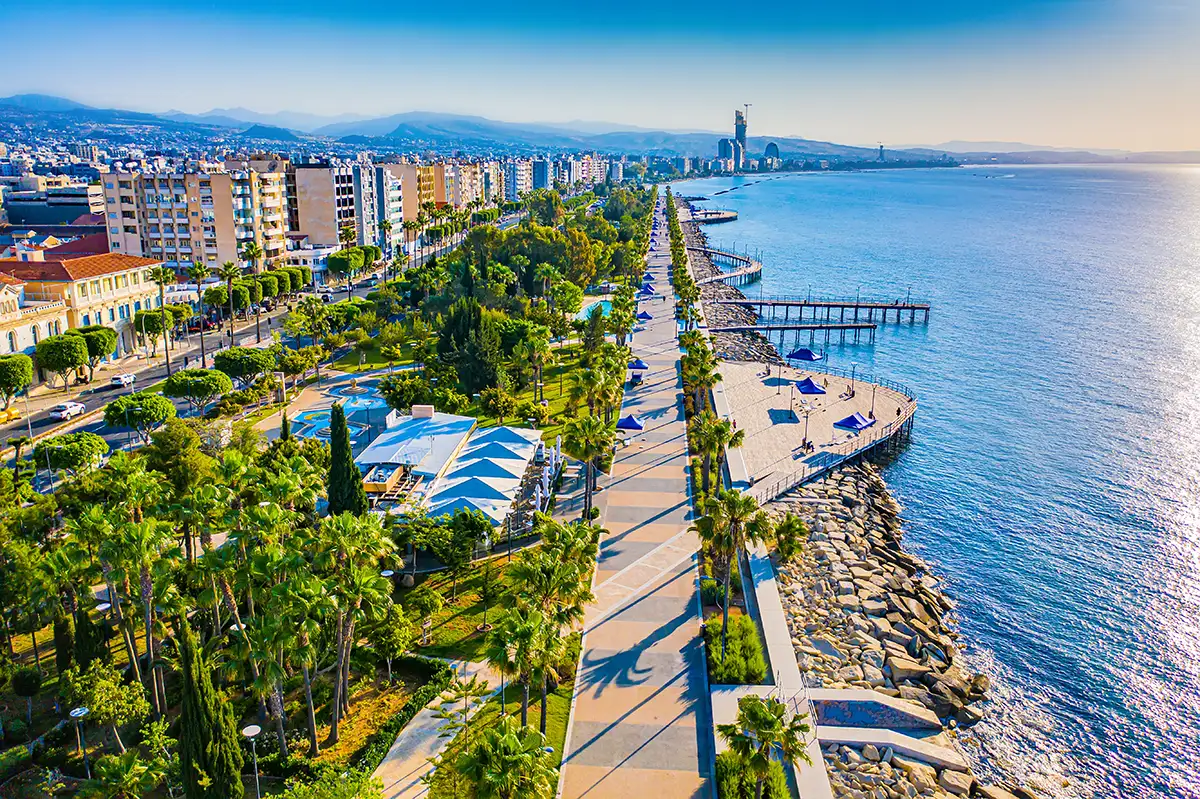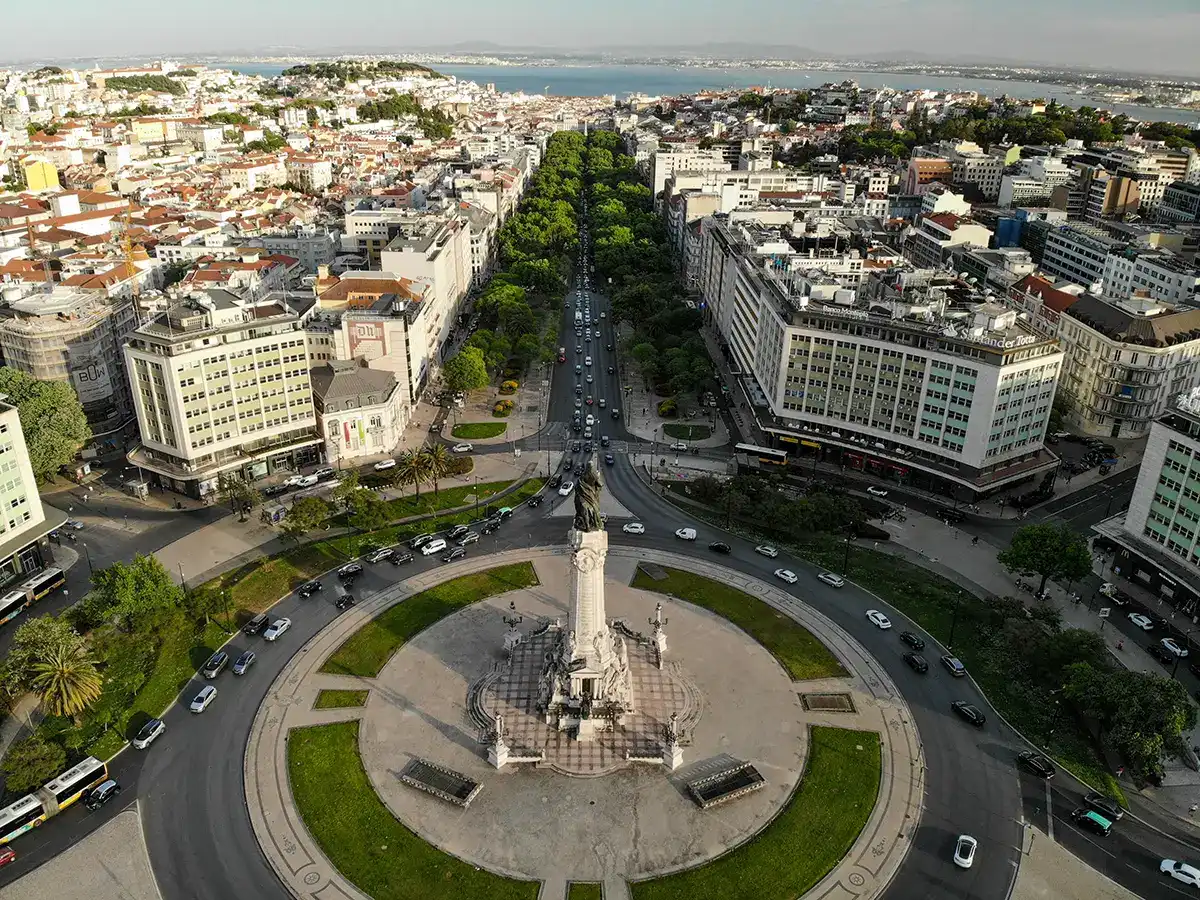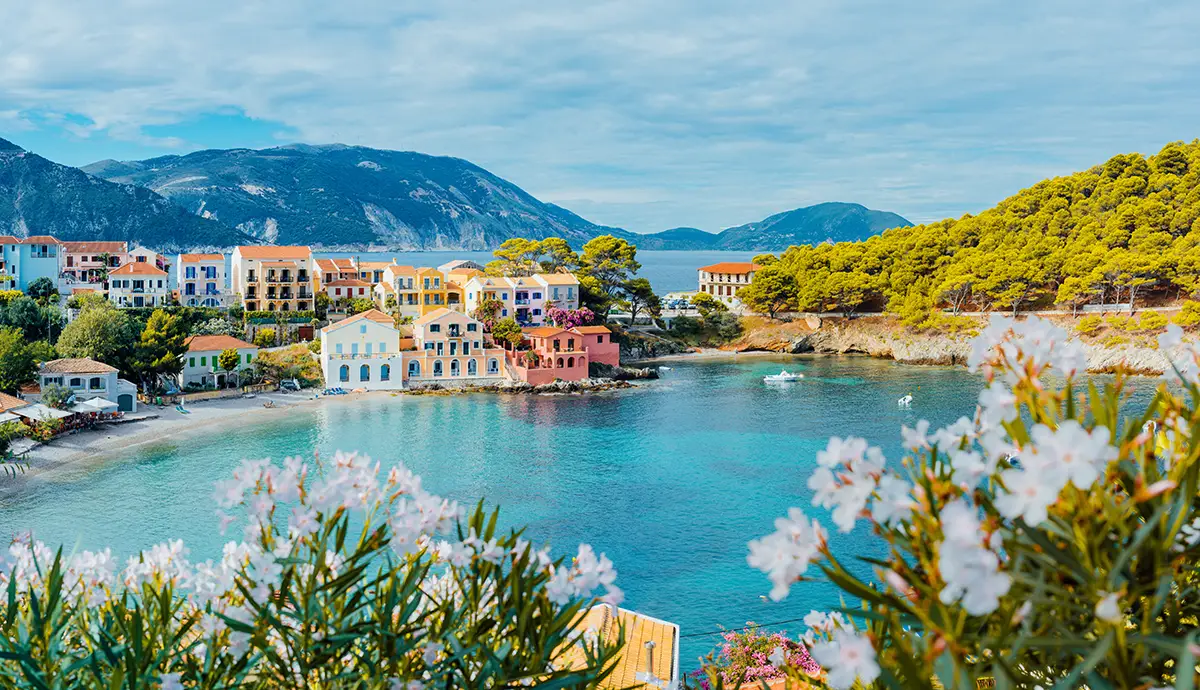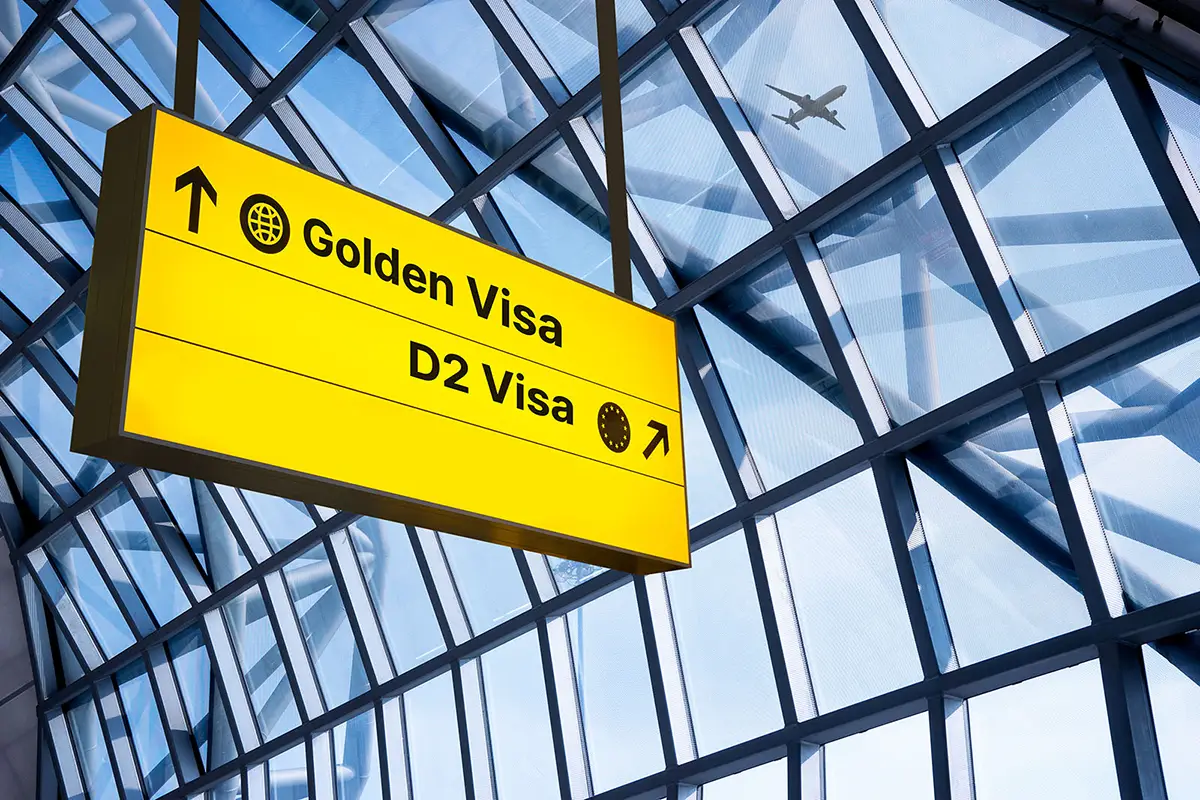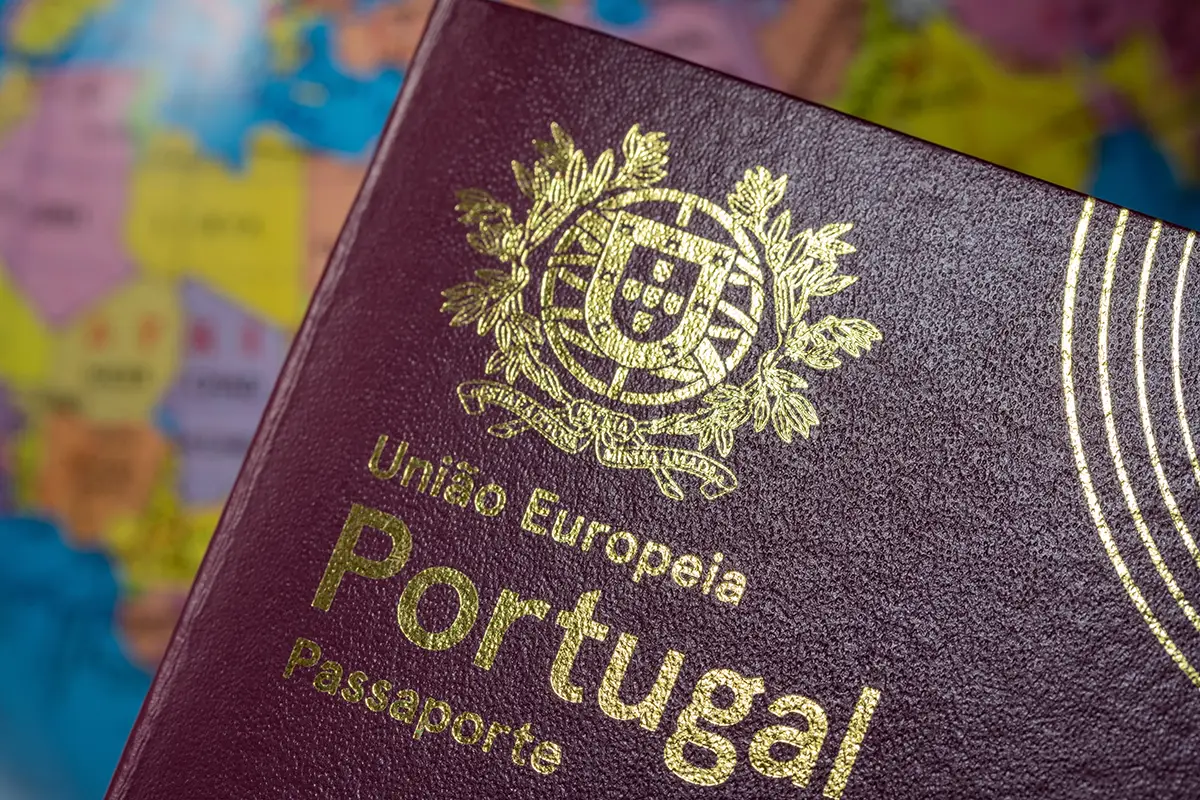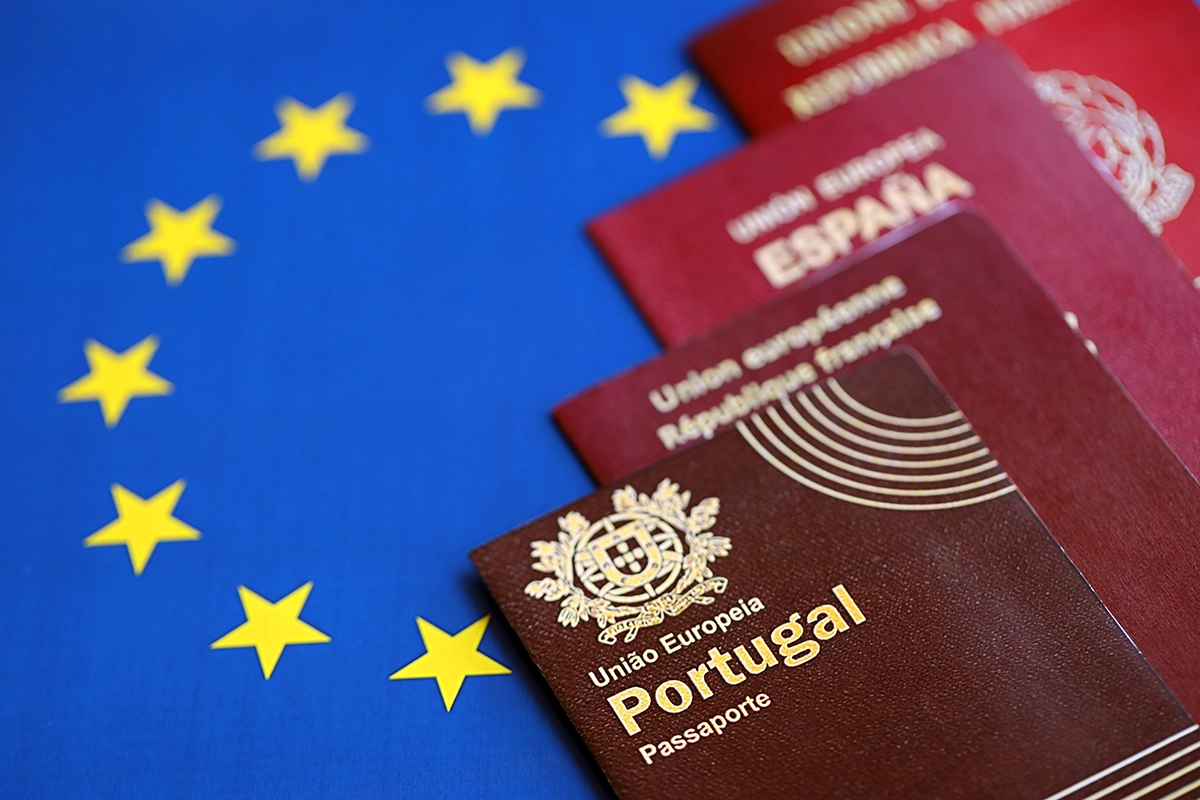Living in Cyprus Pros and Cons
The Pros of Living in Cyprus
As an often-forgotten Mediterranean gem, Cyprus is far from anyone’s first thought when it comes to moving to the European Union.
It is exactly this underratedness which makes the choice of living in Cyprus all the more compelling.
The island's beautiful landscapes, pleasant climate, and rich history provide a stunning backdrop to lead a high-quality life, supported by excellent healthcare and educational systems, and a very welcoming community.
Cyprus presents an opportunity to enjoy a peaceful yet vibrant lifestyle, making it an attractive destination for those seeking a new home within the European Union.
Mediterranean Living
As an island completely bathed by the sea, Cyprus embodies the very concept of the Mediterranean lifestyle.
The summers are long and warm, and the sun shines brightly even during the short, mild winters, allowing for plenty of time to be spent outdoors and in nature.
With 320 to 340 sunny days per year, warm temperatures ranging between 30ºC to 35ºC in the summer, and 10ºC to 15ºC beaches, sea, plenty of space and mountain escapes – all in one place.
Nicosia, the Cypriot capital, finds a healthy balance between relaxation and the vibrancy of a modern European city, and achieving a perfect mix of the past and the present.
Cyprus, as a whole, offers a refreshing change with the chance to unwind while still enjoying the perks of urban living.
Whether it is relaxing by the sea, exploring the vibrant cityscape, or immersing oneself in the local culture, Cyprus has something to offer everyone.
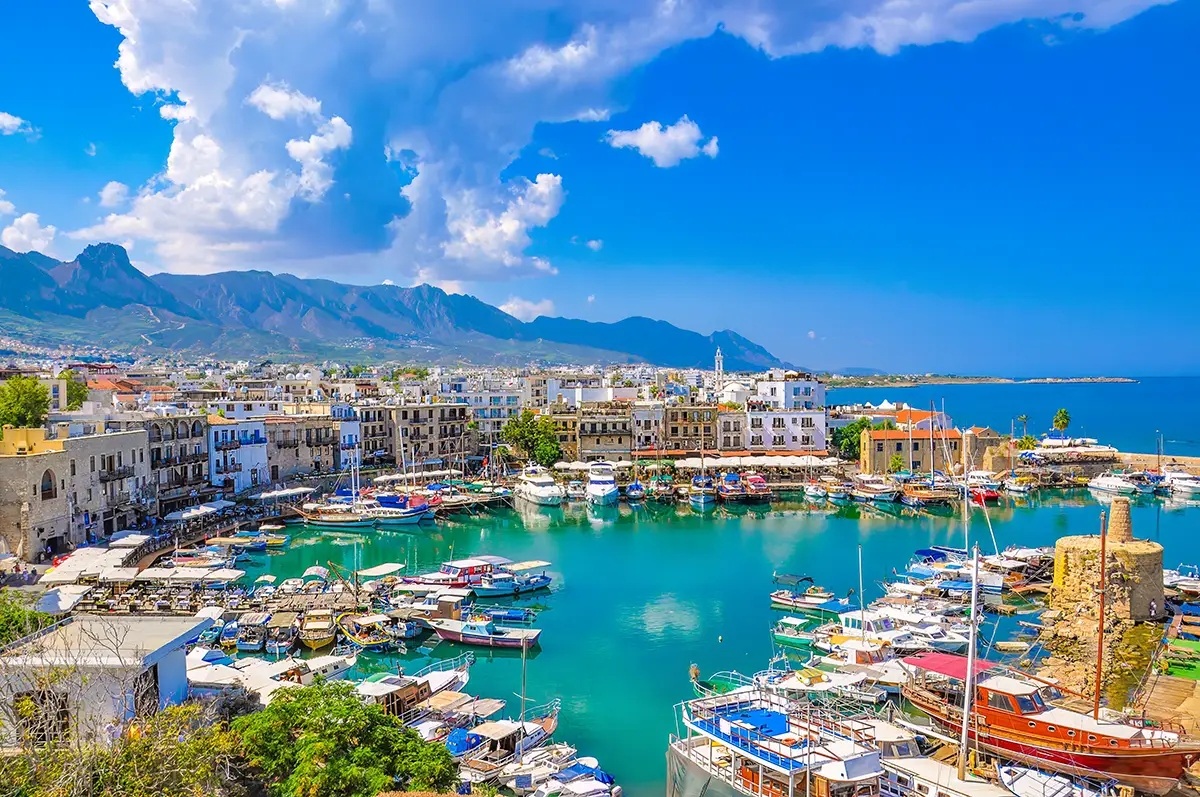
Affordable Cost of Living
You'll be pleasantly surprised to find the cost of living is lower than most of Western Europe, with every day prices
Current crowd-sourced data reveals that monthly living costs are around €880 for a single person and roughly €3,000 (around USD $3,250) each month for a family of four before rent.
With rent, families often land near €4,000–€4,800 depending on city and school choices.
However, some items might be slightly more expensive, which makes sense when you factor in that Cyprus is an island and has to import certain products.
With careful budgeting and planning, Cyprus remains an attractive destination for those seeking a Mediterranean lifestyle within the European Union.
English Widely Used
Greek is Cyprus’ official language, but English is sufficient to get by and get things done, especially in larger cities and with setting up services.
Large Expat Communities
Building on the previous point, Cyprus is a popular choice for foreign individuals.
In 2023, it registered the second highest rate of immigration, with 43 immigrants per 1000 persons.
Laidback Way of Living
Complementing the Mediterranean lifestyle is the slower way life is generally paced in Cyprus – perfect for expats and retirees seeking a more relaxed background.
That’s not to mean it’s not luxurious – with several high-end services and fine dining restaurants and other gourmet experiences available in the country.
Excellent Healthcare and Insurance for Expats and Retirees Living in Cyprus
Cyprus’ universal health insurance system is known as GESY – the General Healthcare System in English.
Legal residents who work and contribute can access broad coverage with low copays. However, many expats add private insurance for shorter waits and broader hospital choice.
Property Prices
Cyprus has one of the most affordable property prices in all of Europe.
The average prices per square meter range between €1300 to €5000, city and whether it’s located near the center.
The average is around €3050 per square meter in the city center, and €2270 outside the city center.
Real Estate Cyprus Golden Visa
Besides Greece, Cyprus is one of the few countries that still offers a real estate golden visa in Europe.
Its minimum investment amount of €300,000 lets you have residency in the country plus your own property abroad.
The housing rental market and properties for sale in Cyprus are considerably more affordable.
You can take full advantage of these lower prices with the Cyprus Golden Visa, which will enable you to get legal residency status in the country.
The best part about it is that you can bring your family to enjoy all the benefits of living in Cyprus.

Safety
Cyprus is one of the safest countries in the EU for residents and tourists.
Most common criminal activity tends to be related to petty theft, property and burglary.
It also has one of the lowest homicide rates per 100,000 inhabitants.
Tax Optimization
Cyprus is among the most tax-friendly countries in the European Union.
Its personal income tax brackets start at 0% for incomes up to €19,500 is 0%, with progressive rates above that.
The corporate tax is among the lowest in Europe at 12.5%.
Disadvantages of Living in Cyprus
Despite being a truly wonderful country to live in and settle down in, Cyprus is not without its issues, as with any other country in the world.
While it isn't paradise on Earth, life in Cyprus may very well be the closest imaginable. However, it is important to be aware of some of the challenges that come with living on this beautiful island.
No Schengen Travel – Yet
Cyprus is an EU member country but is currently not part of the Schengen Zone.
However, the government is currently planning for full Schengen accession in 2026.
Potential Instability
Internationally, Cyprus is only one country. However, the story is different within its borders, which are disputed with Turkiye over the northern side of the island.
Even though Cyprus is a country that’s safe for every day life, and there are no ongoing conflicts in the area - a situation that's remained static since 1974 - it may be difficult to fully explore every corner of the island.
Energy Bills Can Bite
According to Eurostat, Cyprus has the 6th highest electricity prices in the EU.
Per the latest data, referring to the second half of 2024, it had the second-highest electricity prices based on purchasing power standard, just after Czechia.
Limited Public Transport Connectivity
There are buses connecting major cities, but public transportation is rather limited. Instead, most residents use their cars to drive around.
A Smaller Job Market
While Cyprus is a dreamy destination for remote workers expats, business owners and retirees, it may not be the best fit for those who are seeking to relocate and find a job there, especially if there’s no knowledge of Greek.
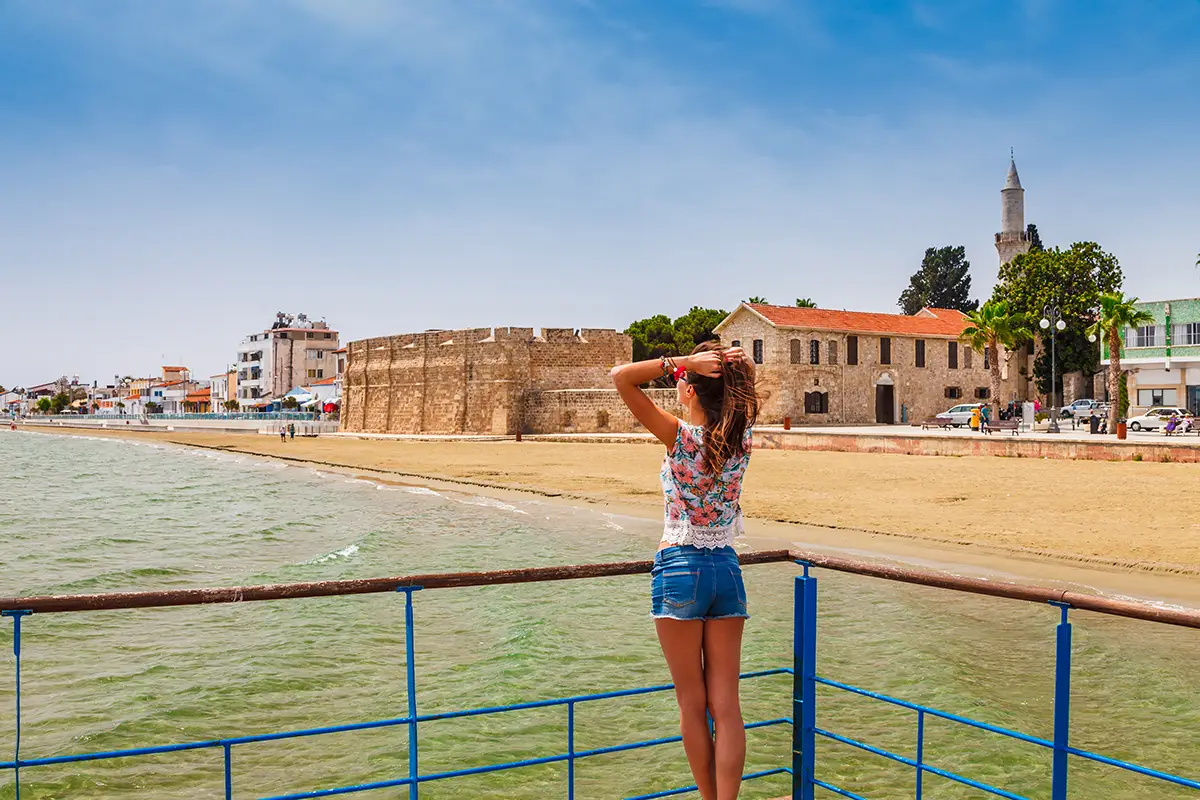
Best Places to Live in Cyprus as an Expat
Limassol
If you want a cosmopolitan coastal city with marinas, dining, and business services, Limassol is the place you should settle.
Prices are higher than anywhere else on the island, but it’s also where you’ll find the most to do on the island: seafront promenades, international schools, coworking, and festivals.
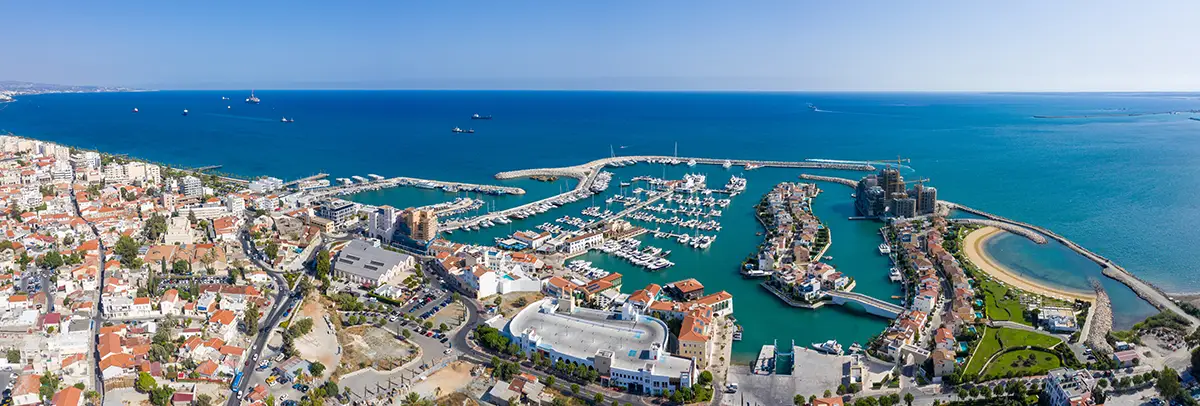
Nicosia
Despite being the Cypriot capital, Nicosia isn’t as popular as Limassol. With fewer tourists and no beach, Nicosia is the country’s economic, academic and administrative hub.
However, it does offer better value for money than Limassol, which some expats prefer for everyday life.
It’s also where you’ll find the largest cluster of universities and government agencies, so it suits professionals and families who want cultural events, hospitals, embassies, and bilingual services close at hand.
Bus connections to coastal cities are reliable for day trips, though a car still wins for weekend escapes.
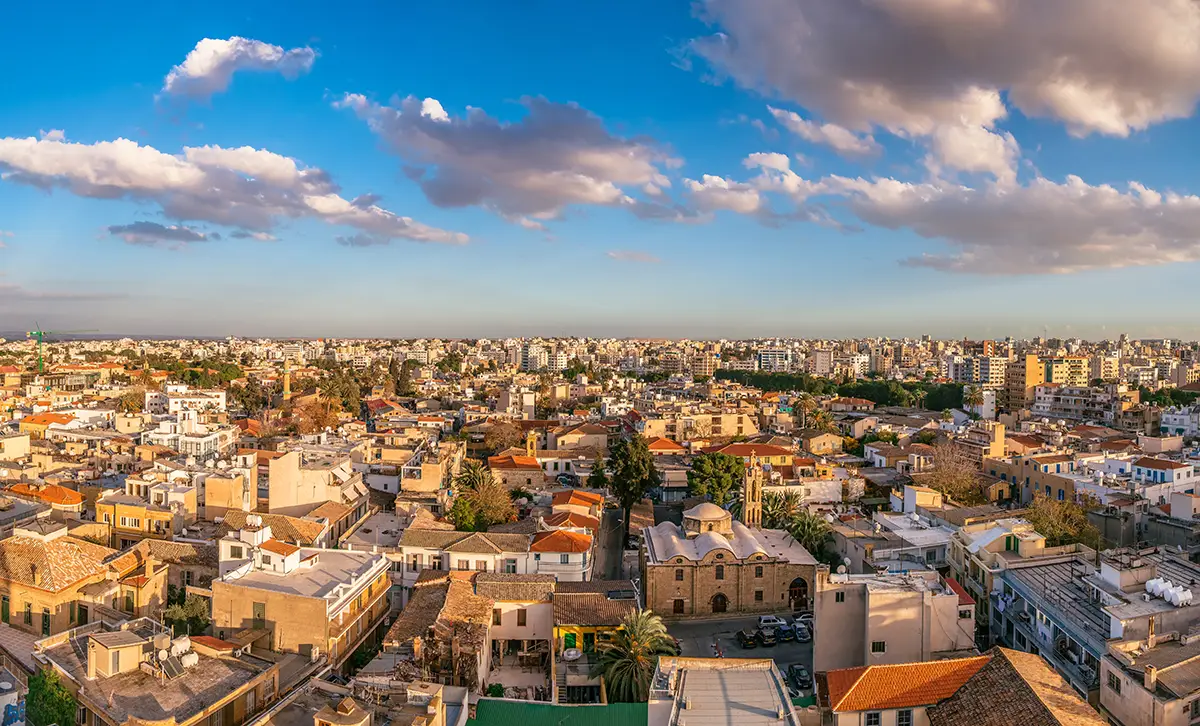
Larnaca
Larnaca delivers airport convenience, boardwalk living on Finikoudes, and friendlier pricing than Limassol.
It’s a favorite among remote workers and retirees who want calm seaside way of life without sacrificing access to a city.
Groceries and utilities tend to be lower than in larger urban centers.
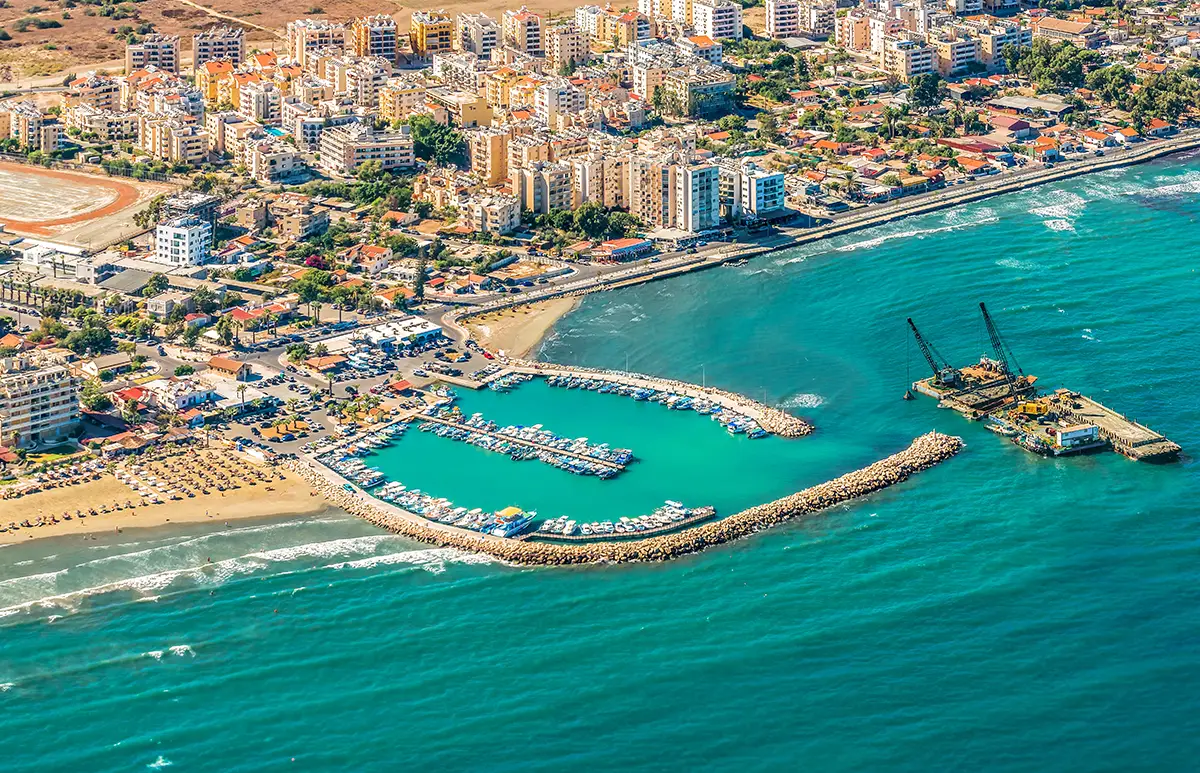
Paphos
Paphos is where the beach meets ancient history. The harbor, castle, and archaeological sites set a quieter tone that retirees love, while the airport keeps it accessible.
Housing can be more affordable than Limassol, and hill villages just inland offer cooler summer nights.
Services are increasingly expat-savvy, though for specialized shopping and nightlife you will likely need to drive to bigger cities.
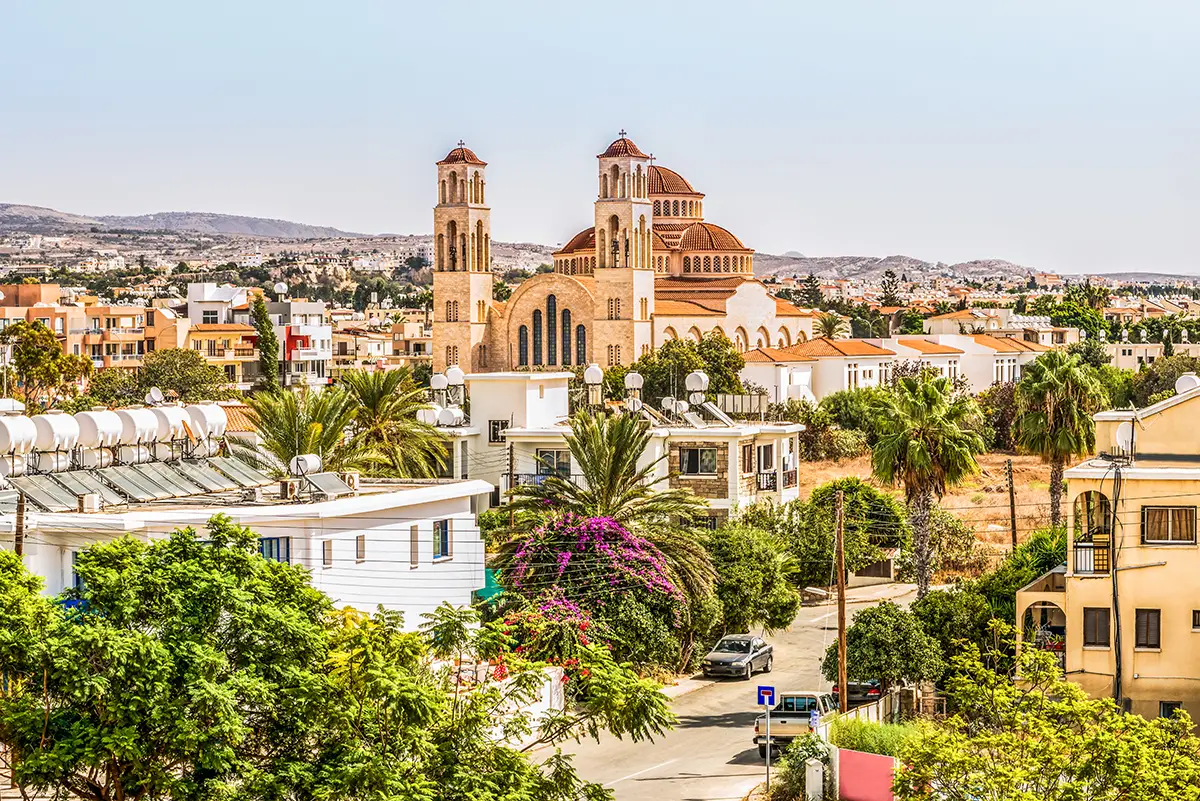
The Cyprus Golden Visa Explained
The Golden Visa is the best way to secure all the pros of living in Cyprus. The country offers a pathway to permanent residency to non-EU investors through its Golden Visa program.
There are multiple options available to choose from, acquiring shares in Cypriot companies, investment funds and property investment.
The minimum investment for real estate starts at €300,000.
Your spouse and dependent children can be included. It typically only takes a few months for your file and biometrics to be processed.
Details:
- Minimum Investment: €300,000 in first-sale property;
- Family: spouse and dependent children (generally up to 25 if financially dependent and in education);
- Minimum Stay Requirement: maintain permanent residency by visiting Cyprus one day every 2 years;
- Timeline: Typicall 3 months after submission and biometrics;
Since real estate is the typically preferred option, investors are allowed to purchase more than one unit, whether it’s residential or commercial – as long as the minimum amount is €300,000.
How It Benefits You
- The right to reside in Cyprus long-term;
- The right to enroll your children in schools;
- Access to healthcare as eligible residents;
- Buy a home you can live in or keep as an investment.
Pathway to Citizenship
As a Golden Visa Holder, holding permanent residency is not the same as citizenship.
However, it is possible to unlock the prestigious EU passport with the Golden Visa via naturalization.
The standard route generally requires about seven years of legal residency, with a continuous final year before the application.
Summary: Living in Cyprus: Pros and Cons – Is it Worth it?
Short answer: Yes.
Longer answer: Living in Cyprus has its pros and cons, like any other country.
Choose Cyprus if you want:
- Sun for most of the year;
- Simple paperwork for residency;
- An English-friendly daily routine;
- European standards at lower costs;
- A strong healthcare system with private options.
The trade-offs are clear. Cyprus is in the EU but not yet in Schengen, energy bills can feel costly, public transportation is limited so you will likely need to drive around, and the job market is small unless you work remotely or run a business.
If that balance fits your lifestyle, especially when considering the pros and cons of retiring and staying long-term in Cyprus.
The Golden Visa at €300,000 gives you permanent residency, family inclusion, access to healthcare & education systems, and a path to naturalization over time.
For many, the benefits outweigh the disadvantages of living in Cyprus.
How to Move to Cyprus with Investment Visa
Step 1: Free Eligibility Check
Tell us your family situation, budget, and timeline.
We confirm if the Cyprus Golden Visa fits your goals for living in Cyprus as an expat.
Step 2: Locking in Your Investment Strategy
Most clients select first-sale real estate from €300,000.
We map pros, risks, expected yields, and exit options.
We also present other country alternatives if necessary.
Step 3: KYC and Document Preparation
We issue a precise list and templates. Typical items include passports, clean criminal certificates, proof of income, medical insurance, marriage and birth certificates for dependents, and draft property purchase paperwork.
We arrange certified translations and apostilles if needed.
Step 4: Property Selection and Reservation
All the properties we present to you are readily qualifiable for the Cyprus Golden Visa.
In addition, we run due diligence and set up deeds and contracts.
A reservation deposit is usually required by the seller. We align contract conditions with immigration rules, so your file is compliant from day one.
Step 5: Application Submission
Our legal team compiles forms, evidence, and investment contracts, then submits them to the Civil Registry and Migration Department.
You sign where required; we handle filing and tracking.
Step 6: Biometrics in Cyprus
After submission, you’ll need to attend a biometrics appointment in Cyprus.
We schedule the appointment, prepare you for the visit, and coordinate any additional documents requested.
Step 7: Approval and Permanent Residency Card Issuance
Upon approval, you receive the decision, and your Permanent Residence card is issued.
Timing is typically a few months after a complete file and biometrics.
We manage collection and practical setup so you can move in smoothly.
Step 8: Post-Approval Compliance
Maintain the qualifying investment, keep valid medical insurance, meet visit requirements, and update authorities if family or address details change.
Make Sure You Get Your Own Cyprus Golden Visa Before Schengen Accession with Investment Visa


